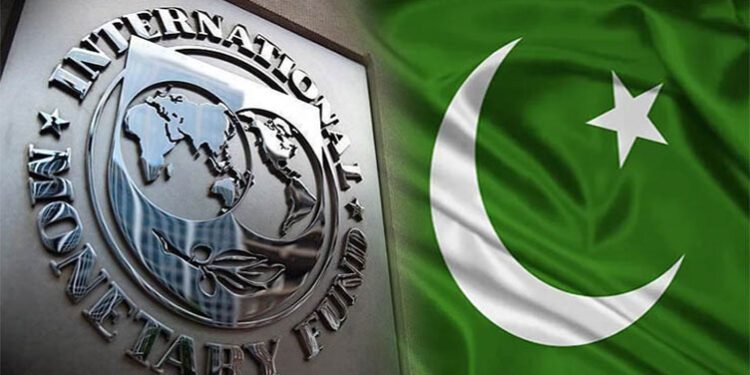Pakistan’s enduring relationship with the International Monetary Fund (IMF) since 1958 has intricately woven a tapestry of financial challenges, strategic maneuvers, and global assistance, significantly influencing the nation’s economic trajectory over the decades.
Recent data presents a nuanced perspective on Pakistan’s current engagement with the IMF, with noteworthy implications for economic stability. Currently, Pakistan ranks fifth globally in terms of outstanding debt with the IMF, amounting to $7.4 billion, positioning it after Argentina, Egypt, Ukraine, and Ecuador.
In 1958, Pakistan successfully secured its inaugural IMF bailout, amounting to $25,000 (equivalent to approximately $274,000 in 2024). Notably, the largest-ever loan of $7.6 billion in 2008, during the Gillani government, witnessed a subsequent withdrawal of $4,936,035.
As the IMF Executive Board assembles on January 11 to assess Pakistan’s request for supplementary funds, the session will deliberate on the conclusive approval for the release of a $700 million tranche within the ongoing $3 billion Stand-By Arrangement (SBA).
Within the fiscal year of 2023, Islamabad’s transactions with the global lender recorded a substantial sum of $894 million, encompassing charges and interest payments amounting to $776 million and $325.8 million, respectively. The notable acquisitions in 2022, totaling $1.64 billion, underscore the escalating financial dependence on the IMF, raising inquiries regarding Pakistan’s economic challenges and developmental initiatives.
Critical phases
Examining historical trends, the year 2013 emerged as a critical year, witnessing substantial disbursements and repayments that signaled a pivotal moment in Pakistan’s economic trajectory. While notable appeals for financial assistance were made in 2001 and 2008, it was in 2013 that the ramifications became particularly profound.
The persistence of economic challenges underscores a nuanced equilibrium among disbursements, repayments, and interest payments. Selective and strategic repayments in years, such as 2009 and 2014, reveals a proactive stance toward debt management, thereby underscoring the nation’s dedication to maintaining fiscal discipline.
Although specific reform measures may not be explicitly delineated, historical financial transactions suggest a significant influence of International Monetary Fund (IMF) engagements on shaping Pakistan’s economic reform agenda. Ongoing initiatives, including but not limited to currency stabilization, inflation management, and structural reforms, indicate a consistent and enduring interaction with the IMF.
Navigating the intricate equilibrium between availing support from the International Monetary Fund (IMF) and the enduring objective of diminishing reliance on external aid presents a nuanced challenge for Pakistan. The substantial financial transactions observed in 2022 and 2023 raise questions about whether Pakistan is contending with economic challenges or actively pursuing significant developmental initiatives.
Research indicates that IMF agreements may yield serious repercussions, manifesting in escalating poverty, unemployment, subdued economic growth, and imbalances in the payment structure. Critics posit that such agreements may inadvertently encourage the adoption of imprudent domestic economic policies, fostering long-term dependency. Ongoing debates surrounding IMF conditionalities persist, amplifying concerns regarding their potential impact on overall economic growth.
Despite temporary relief, experts caution that fundamental structural issues contributing to past defaults remain unaddressed. A critical analysis of Pakistan’s borrowing practices underscores the warning against living beyond means with minimal substantive gains. The IMF, in defense of its latest agreement, asserts that it provides Pakistan with a policy anchor and a structured framework for financial support.
Pakistan, having sought IMF bailouts 23 times since its accession to the organization in 1950, reflects the inherent volatility of its economic landscape. Historical events, such as the separation of East Pakistan in 1971, necessitated significant financial assistance to address ensuing economic challenges. The recurrent pattern of seeking IMF aid underscores the intricate nature of managing Pakistan’s economic trajectory.
As Pakistan’s economic journey unfolds, recent data sheds light on a nation grappling with multifaceted challenges, strategically navigating financial engagements, and placing emphasis on stability efforts. The delicate equilibrium between external assistance and the enduring pursuit of long-term economic independence remains a focal point as Pakistan endeavors to chart a sustainable path forward.
















